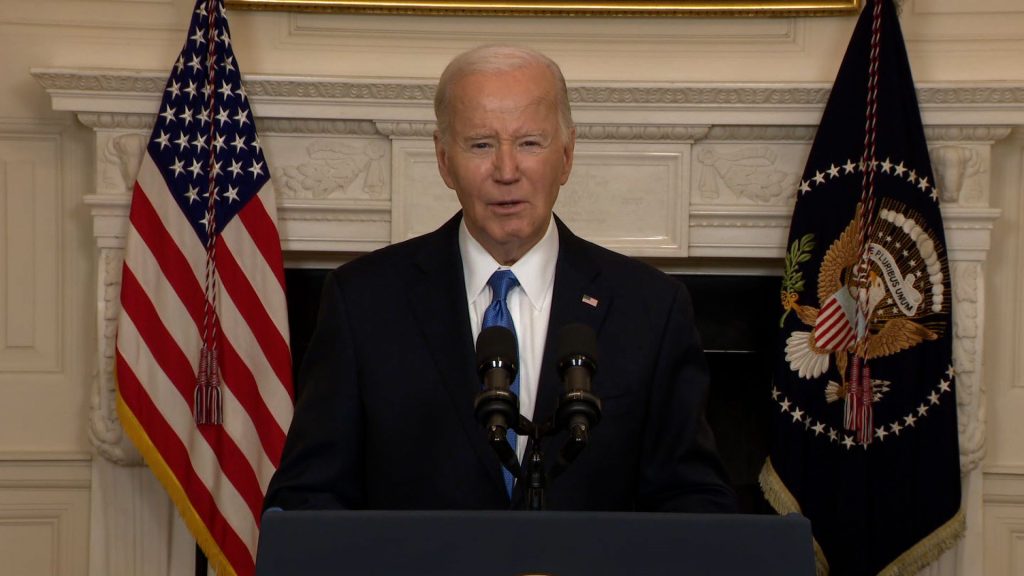The United States has issued its strongest public warning yet to Israel against invading Gaza’s crowded city of Rafah, claiming that such a land assault would exacerbate the humanitarian catastrophe in the besieged region.
US National Security Adviser Jake Sullivan told reporters on Monday that, while President Joe Biden remains dedicated to destroying Hamas, he informed Israeli Prime Minister Benjamin Netanyahu that a large assault on Rafah would be a “mistake”.
“It would lead to more innocent civilian deaths, worsen the already dire humanitarian crisis, deepen the anarchy in Gaza and further isolate Israel Internationally,” Sullivan said.

The Israeli military has killed more than 31,000 Palestinians in Gaza since the start of the war on October 7, following a deadly attack on southern Israel that killed at least 1,100 people.
According to Sullivan, Biden asked Netanyahu in a phone call to send a team of intelligence and military officials to Washington, DC, to hear concerns about any potential invasion of Rafah.
Throughout the war, Israel has ordered Palestinian civilians in Gaza to move south as it invaded the territory from the north.
Many residents were first displaced to the middle part of the enclave and then moved to the southern city of Khan Younis. They were ultimately forced to flee again to Rafah, situated on the Egyptian border.
Over the past five months, Rafah’s population has ballooned to more than 1.5 million people, up from about 300,000 before the war.
Israeli leaders have repeatedly expressed their intention to invade Rafah, which serves as a key hub for humanitarian aid coming through the Egyptian border.
But United Nations experts have warned of looming famine in the territory. And Western countries, including Israel’s allies in Europe, have cautioned the country against assaulting Rafah.
On Monday, the US unambiguously joined those calls, with Sullivan saying that Palestinians in Rafah have nowhere else to go.
“Gaza’s other major cities have largely been destroyed, and Israel has not presented us or the world with a plan for how or where they would safely move those civilians — let alone feed and house them and ensure access to basic things like sanitation,” Sullivan said.
Sullivan said Biden reiterated to Netanyahu his “bone-deep commitment” to Israel’s security. But he went on to criticise Israel’s war effort.
“A military plan cannot succeed without an integrated humanitarian plan and political plan,” Sullivan told reporters.
“And the president has repeatedly made the point that continuing military operations need to be connected to a clear strategic endgame. The president told the prime minister again today that we share the goal of defeating Hamas, but we just believe you need a coherent and sustainable strategy to make that happen.”
Netanyahu and Biden have regularly spoken on the phone since October 7, but the two leaders are reported to have a fraught relationship, despite the US president’s unconditional backing of Israel.
Last week, Senate Majority Leader Chuck Schumer — a staunch Israel supporter and the highest-ranking Jewish elected official in Biden’s Democratic Party — described Netanyahu as an obstacle to peace and called for new elections in Israel “once the war starts to wind down”.
The Israeli prime minister later slammed the top US legislator’s comments as “totally inappropriate” in an interview with CNN.
But Biden described Schumer’s remarks as a “good speech” that expressed concerns shared by many Americans.
Still, in an interview with MSNBC last week, Biden suggested he is not ready to use US aid and weapon transfers as leverage to pressure Israel to end its abuses against Palestinians.
“The defence of Israel is still critical, so there’s no red line [where] I’m going to cut off all weapons so they don’t have the Iron Dome to protect them,” Biden said, referring to Israel’s US-funded missile defence system.
“But there’s red lines that, if he crosses them, [we] cannot have 30,000 more Palestinians dead.”
Palestinian rights advocates have stressed for months that criticism alone will not get Netanyahu to end the war, calling on Washington to place conditions on aid to Israel.
But the Biden administration on Monday renewed its backing for a foreign funding bill being considered in Congress that would provide more than $14bn in additional assistance to Israel.
“Broadly, we support the contours of this supplemental bill. We believe that it is vital for what is required to support our Ukrainian partners, to support our Israeli partners,” State Department spokesperson Vedant Patel told reporters.


